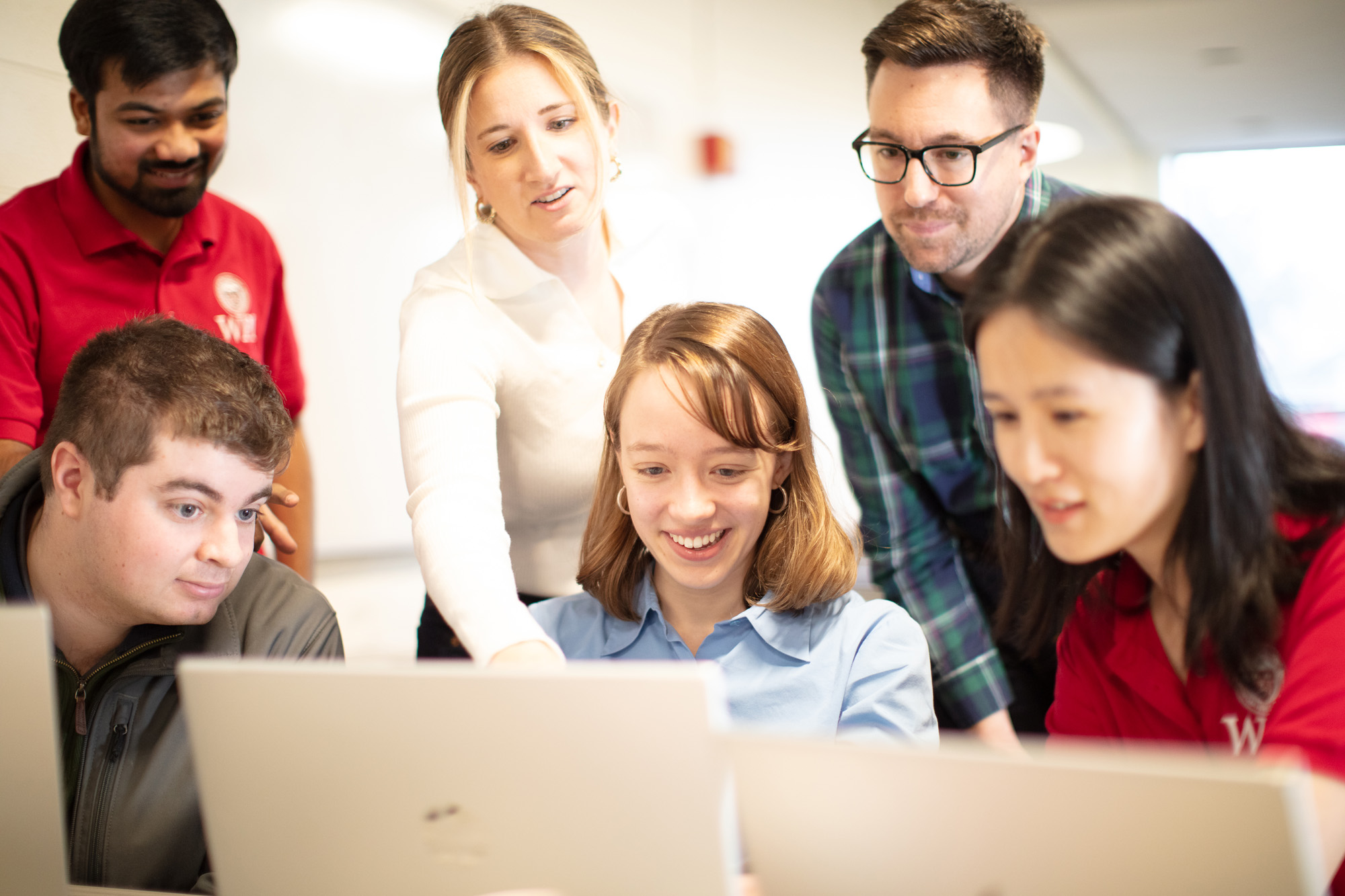Graduate Student Resources
Supporting the Graduate Student Experience
WPI is committed to supporting graduate students throughout their educational experience. From resources that support travel expenses while students present their research findings to workshops that prepare students for post-graduation success---the Office of Graduate Studies is instituting and expanding programming specific to their needs.
Register for a Course
Register for a graduate course by visiting our course listing page. The semester begins in September, January and May; refer to the Academic Calendar and Course Schedules for semester dates and individual course dates.
Looking to start with a single course before applying? Click here.

Info for New Students
We know the idea of going back to school can be overwhelming—especially for those who are new to the WPI community—and our goal is to make the transition as smooth and easy as possible. As a new student you will be assigned a Student Success Team member as soon as you begin your program. We’ll remain with you throughout the duration of your program and work closely with you to ensure you are provided with all the information and tools needed for your program.
New students should plan to register at least one week prior to the start of the semester to establish computer accounts and take care of other necessary details.
Student Ambassadors
The WPI Graduate & Professional Studies Student Ambassador Program connects newly admitted graduate students with experienced peers to help ease their transition to grad school. Understanding that incoming students have many questions—especially about social life, campus culture, and personal experiences—our ambassadors provide valuable, first-hand insights that staff simply can’t replicate. Once a student accepts their offer of admission, they are paired with a dedicated ambassador who offers guidance, answers questions, and fosters a sense of belonging. Working closely with the Student Engagement & Retention (SER) Team and the Onboarding Specialist, ambassadors ensure a smooth and supportive start to each student’s WPI journey.
Info for Current & Returning Students
Welcome back! Here are some resources that help you get ready for the next semester, answer questions that may come up during your time here at WPI, and provide additional services that are available to online students. If you have a problem, or when in doubt, contact your Student Success Team Member.
- Choose your courses: Courses are offered in the fall, spring and summer. Make sure to review what is being offered and register in a timely manner. Learn more.
- Connect your accounts: All students are expected to maintain and check their WPI email account; so make sure to connect yours today. If you have taken two or more semesters off, you need to reactivate your account, which requires that you complete the Graduate Readmission Form, and send it to your Student Success Team member.
- Review important policies, including withdrawal and refund, check-in, judicial, and transfer credit
Funding Opportunities
Funding opportunities like fellowships, scholarships, and grants are available to help make graduate study possible. Below are some resources to help you locate and apply for opportunities that suit your academic plans.
Thesis and Dissertation Resources
At WPI, all doctoral degrees require the submission of a dissertation, and many master's degree programs require the submission of a thesis. Dissertations and theses are submitted electronically.
Electronic theses and dissertations (ETDs): Graduate students should consult with their advisors and departments or programs prior to initiating the development of their ETDs to ensure compliance with style and format requirements.
Submission guide: The Gordon Library has developed a general guide to aid graduate students in the preparation and submission of their ETDs (see below).
Submission portal: Once an ETD has been developed and is ready for submission, graduate students can use the link below to submit it through the WPI ETD portal.
Graduate Student Government
The Graduate Student Government (GSG) is the governing body of the graduate students at WPI. Our mission is to promote graduate life and we fulfill this by being the effective graduate student voice, communicating with faculty and administration, and providing academic and social functions for current and incoming graduate students.
Graduate Department Contact Information
Find the most up-to-date contact information for the Graduate Studies team as well as for each Academic Department
Commencement
Master’s and PhD candidates must submit an application for graduation. Graduate certificate candidates should connect with their Student Success Team Member for processing. You should plan to complete your application during the first few weeks of your final course. Applications for graduation are available three times a year.